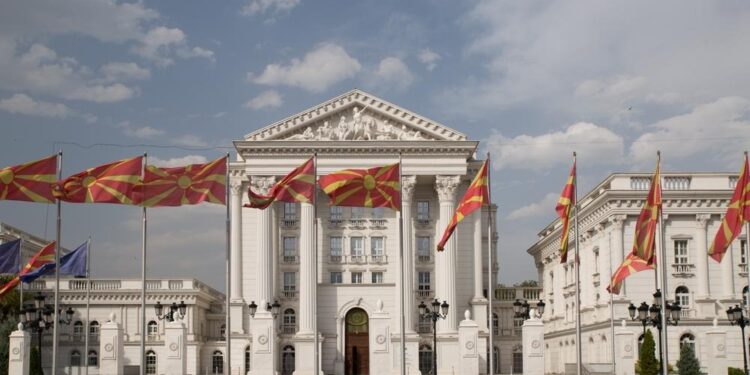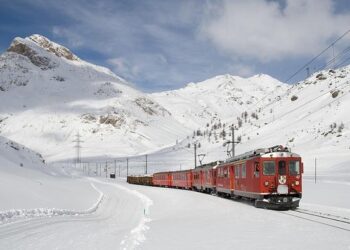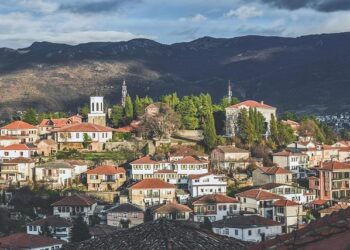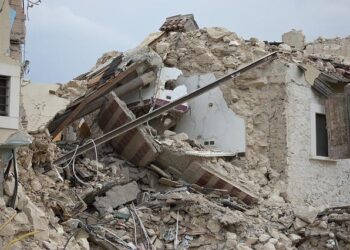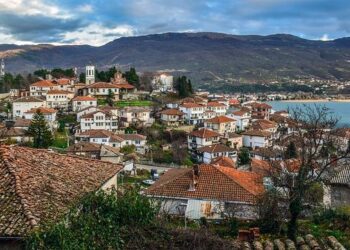The Republic of North Macedonia: Navigating Challenges and Embracing Opportunities in a Changing Landscape
Located in a historically tumultuous region,the Republic of North Macedonia stands at a crucial crossroads.As the nation engages in extensive discussions about it’s future,the upcoming General Debate will highlight significant issues that resonate not only within its borders but also throughout the Balkans and beyond. From ongoing reforms aimed at European Union integration to managing the delicate balance between ethnic diversity and national identity, this debate offers leaders an essential platform to articulate their visions amid shifting geopolitical landscapes and economic challenges. As North Macedonia seeks to carve out its identity on the global stage, these discussions will play a vital role in shaping its trajectory while addressing citizens’ aspirations. With both hope and realism, the country is poised to confront its achievements alongside obstacles as it strives to become a beacon of progress in an ever-evolving world.
Understanding North Macedonia’s Political Landscape During Turbulent Times
The political climate in North Macedonia is characterized by complex ethnic dynamics, regional tensions, and aspirations for EU membership. Recent elections have underscored how nationalism and identity politics can create divisions among citizens. Various political parties are working hard to find equilibrium between protecting the rights of ethnic Albanians—who represent a significant minority—and addressing concerns from the Macedonian majority. As hopes for EU accession continue to resonate across society, government officials face considerable hurdles related to implementing reforms that meet both local expectations and EU criteria.
Moreover, persistent issues such as corruption, economic instability, and social cohesion have tested political fortitude.Recent parliamentary debates have focused on critical areas like judicial reform, media freedom, and anti-corruption measures. These topics have sparked widespread public discourse emphasizing civil society’s role in shaping political narratives. Key stakeholders increasingly acknowledge that progress requires not only addressing existing challenges but also fostering a strong sense of national identity that embraces diversity while advancing toward European integration.
Assessing Economic Opportunities Amidst Challenges Facing north Macedonia
The Republic of North Macedonia finds itself at an crucial juncture with various economic prospects alongside substantial challenges impacting its progress path. The nation has shown resilience over recent years due largely to governmental reforms aimed at enhancing business conditions and attracting foreign investment opportunities such as:
- Strategic Location: Positioned within the Balkan Peninsula serves as an essential trade link connecting Europe with Asia.
- Emerging Technology Sector: A growing startup ecosystem is taking shape with particular emphasis on technology-driven innovation.
- Potential for Tourism Expansion: Rich cultural heritage combined with breathtaking natural landscapes offers avenues for lasting tourism growth.
However, these opportunities come paired with notable obstacles.High unemployment rates—especially among youth—and skill mismatches within labor markets present ongoing difficulties.Additionally perceptions surrounding political instability coupled with corruption can deter potential investors from entering this market space.
Key challenges include:
- bureaucratic Barriers:Cumbersome regulations can hinder business operations while discouraging entrepreneurial initiatives.
- Lackluster Infrastructure Development:Inadequate transport networks along with insufficient digital infrastructure continue limiting economic growth potential.
- Sensitivity To External Factors:Dependence upon regional economic fluctuations along with reliance upon remittances remain pressing concerns affecting stability.
Enhancing Civil Society Engagement & Democratic Participation Within North macedonia
Aiming towards strengthening civil society involvement alongside boosting democratic participation throughout Northern Macedonian communities necessitates adopting multifaceted strategies .One primary recommendation involves reinforcing legal frameworks governing civil organizations ensuring laws remain clear , non-discriminatory ,and supportive civic initiatives.Moreover increasing funding opportunities grassroots movements could stimulate local community involvement .Collaborating international partners providing mentorship resources would also prove beneficial building capacity amongst local organizations .
additonally raising public awareness regarding civic rights responsibilities remains paramount facilitating educational programs targeting schools universities emphasizing meaning civic engagement Regular forums town hall meetings could be organized creating dialog citizens representatives allowing better understanding democratic processes Finally ensuring effective utilization digital platforms enhances outreach efforts mobilizing youth discussions concerning their roles democracy solidifying involvement shaping nations future


